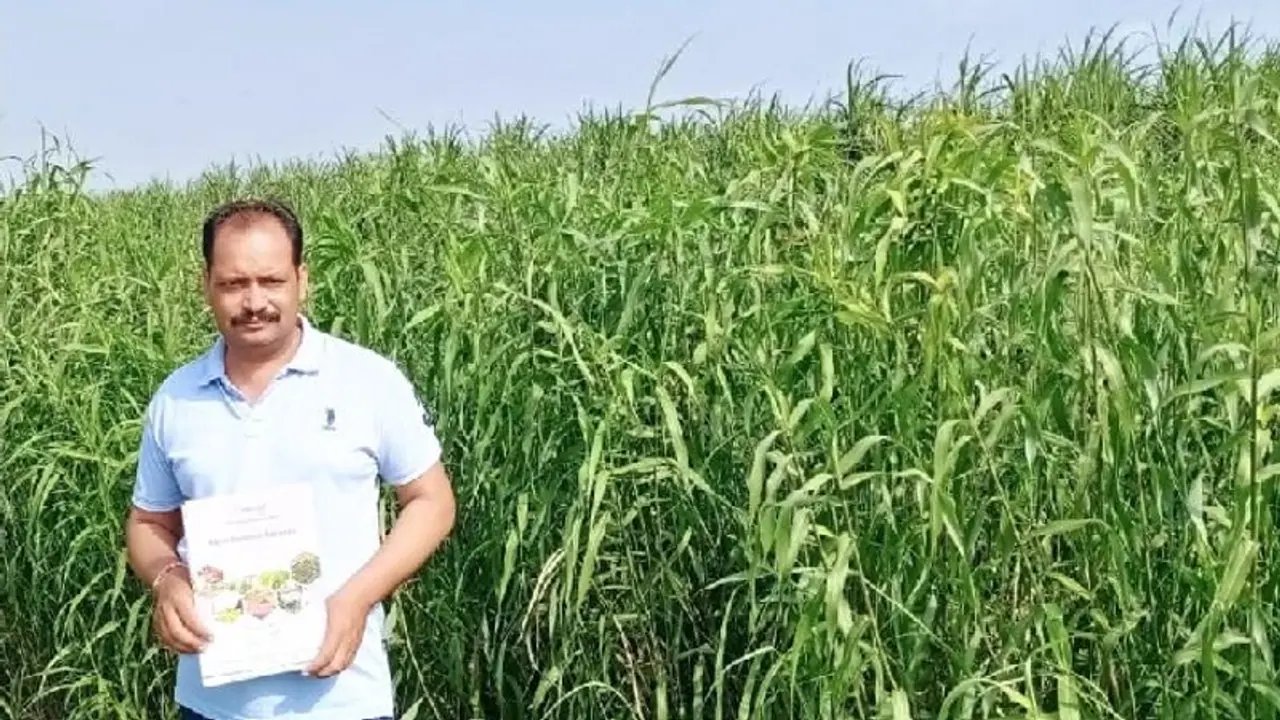Farmers commonly face challenges such as insect infestations in sugarcane crops, losses caused by stray animals, and delayed payments of their production. Dharmendra Tomar sought a solution to these issues. He introduced a simple and cost-effective solution which involved lemon grass cultivation.
Baghpat: Farmers commonly face challenges such as insect infestations in sugarcane crops, losses caused by stray animals, and delayed payments of their production. A resident of Basoli village in Khaprauli block, Dharmendra Tomar sought a solution to these issues. He introduced a simple and cost-effective solution which involved lemon grass cultivation.
With these efforts, farmers are reaping the benefits from the crop production. Dharmendra shares that he believed adopting crops providing year-round income was crucial, leading him to start lemon grass cultivation.
Making products with lemon grass
Lemon grass is utilized in the production of oil and green tea. It is a cost-effective solution that requires minimal water. This plant remains productive for 10 to 12 years, rapidly regenerating after each harvest. The countrywide demand for lemon-tea and oil has created a lucrative market for farmers. Cultivating one acre, with an investment of Rs 25 thousand, yields approximately Rs 2 to 2.5 lakh.
The idea
Dharmendra Tomar shares that twelve months go in the cultivation of sugarcane; it is a year-round process, and many efforts go in its production. Since 2008, he has been involved in the animal semen manufacturing business. During a trip to Sultanpur district for supply, he noticed lemon grass cultivation on the roadside. Upon learning more from locals about the owner of the farm, he visited the farmer’s house, gathered information about the crop, and subsequently brought lemon grass roots from Lucknow to initiate cultivation in his fields.
Farmer Producer Organization
Dharmendra Tomar mentions that over the last three years, he has provided training to other farmers. During the pandemic, the demand for his products increased, and people even made advance payments to secure early deliveries. Two machines have been installed to meet the demand. As awareness spreads among farmers, there is potential for large-scale lemon grass production in the region.
Dharmendra established a farmer’s group in 2016 which evolved into the Unnat Kisan Bioenergy Farmer Producer (FPO) in 2019. Presently, almost 1000 farmers are associated with this initiative. The FPO’s turnover stands at approximately Rs 1 crore.
Creating a market
According to Dharmendra Tomar, markets for traditional crops like wheat, paddy, and sugarcane are already well established. The challenges are faced to create a market for their medicinal products. FPOs need to create and establish their own market. Despite the difficulties, a surge in the demand for their products has been observed over the last few years.
Drones in fields
Dharmendra Tomar used a drone to spray medicines on the sugarcane crop for the first time in August-September. Peppermint serves as a co-crop alongside sugarcane in his cultivation. He shares that some farmers are also engaged in beekeeping business. Kisan Unimart has further contributed to their agricultural endeavours, generating a business of Rs 45 lakh in the current year.
